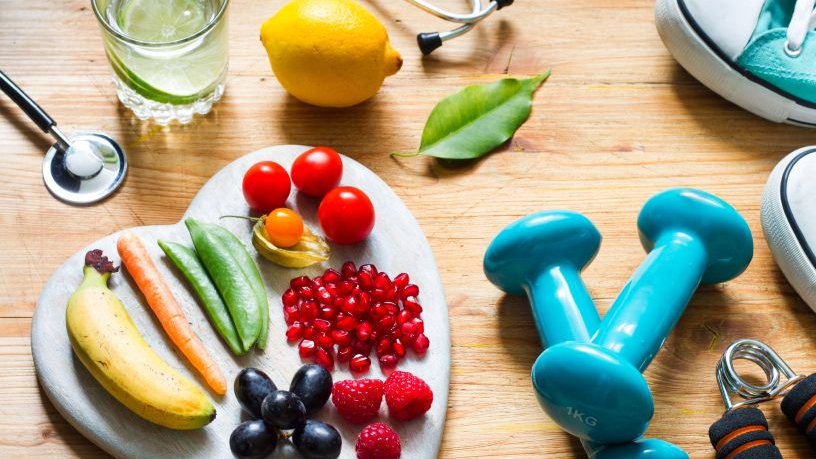The beginning of a new year often begins with the list of good intentions, which never as in this period should be polarized towards maintaining a good state of health. The professor. Giorgio Sesti – Full Professor of Internal Medicine at La Sapienza in Rome, UOC Director of Internal Medicine of the Sant’Andrea University Hospital in Rome, and New President of the Italian Society of Internal Medicine – presents the decalogue of the Italian Society of Internal Medicine for a 2022 in the name of good health.
1. Watch out for portions at the table. Often you don’t need a diet, but just a little attention not to overdo the amount of food consumed at each meal (avoiding nibbling between one and the other). You can eat anything, but in moderation. To be able to taste and enjoy all foods, without harming your health.
2. Take your measurements. Weigh yourself at least once a week and regularly measure your waist circumference with a measuring tape. Overweight and obesity (especially ‘visceral’ obesity, responsible for the increase in waist size) are important risk factors for diabetes, arterial hypertension, fatty liver (fatty liver), cardiovascular disease and some cancers. So let’s save ourselves the extra pounds.
3. Good health is built at the table. Limit the consumption of saturated fats (contained in red meat, processed meats and cheeses), increase that of fish and vegetable fibers (vegetables, legumes, fruit and whole grains) and include small quantities of precious foods, such as oil, in the diet olive, nuts and seeds. Limit your consumption of salt and salty foods (sausages, cheeses, canned goods). Reduce your consumption of sugar (including in drinks) and alcohol; drink more water instead.
4. Get on track. Carrying out physical activity of moderate intensity for at least 150 minutes a week (brisk walking, running, cycling, swimming) not only helps to consume excess calories, but also improves cardiac performance and respiratory function, increases the muscle strength, lowers blood pressure, lowers blood sugar and raises ‘good’ cholesterol (HDL) levels.
5. Find out if you have ‘sweet’ blood. Measure your fasting blood sugar to find out if you have type 2 diabetes or are at risk of developing it. Intercepting the onset of diabetes in the bud allows you to slow down its evolution and protect against its complications (cardiovascular, kidney and eye diseases).
6. Know the ‘numbers’ of your pressure. Check your blood pressure regularly and, if it is high (above 140/90 mmHg), take measures: fewer calories and less salt at the table, more physical activity and a check-up by the doctor, to start therapy if necessary. They will keep the risk of heart attack or stroke at bay.
7. Don’t blow your life up. Talk to your doctor to find out what you can do to stop. Tobacco smoking is one of the most important risk factors for respiratory, cardiovascular and cancer diseases. All types of tobacco are harmful, including filter cigarettes, cigars and pipes, regardless of how they are smoked. Also beware of ‘electronic’ smoking.
8. Remember to take your medications. If you are on chronic medication (for diabetes, hypertension, high cholesterol, cardiovascular disease, or other chronic diseases), take them as prescribed by your doctor, never stop them. If in doubt, consult your doctor, without taking any chances with do-it-yourself modifications. To remind you to pick them up on time, put an ‘alarm clock’ on your mobile.
9. Antibiotics and painkillers, only if prescribed by your doctor. Taking antibiotics won’t make you feel better if you have a viral infection (such as a cold or flu). in return you will make your contribution to the planetary problem of antibiotic resistance. Misuse of some anti-inflammatory / pain relievers (NSAIDs) can increase the risk of heart attack, stroke, heart failure, stomach bleeding, and kidney disease.
10. The vaccine saves your life, but don’t ask Dr. Google for advice. We can all have doubts about vaccines, including influenza and Covid-19 vaccines; However, do not look for answers on the Internet, but talk to your doctor. And still on the subject of Covid-19, do not forget to carefully practice the anti-contagion measures: physical distancing, masks, wash your hands often and often ventilate the room in which you stay, at home or in the workplace.
